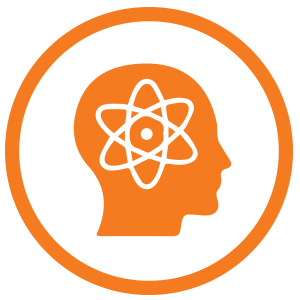Mental Health and Substance Abuse Social Workers
What They Do: Assess and treat individuals with mental, emotional, or substance abuse problems, including abuse of alcohol, tobacco, and/or other drugs. Activities may include individual and group therapy, crisis intervention, case management, client advocacy, prevention, and education.
Also Called: Case ManagerClinical Social WorkerClinical TherapistClinicianCounselorLicensed Clinical Social Worker (LCSW)Mental Health TherapistSocial WorkerTherapist
Resource Details
On The Job
- Counsel clients in individual or group sessions to assist them in dealing with substance abuse, mental or physical illness, poverty, unemployment, or physical abuse.
- Collaborate with counselors, physicians, or nurses to plan or coordinate treatment, drawing on social work experience and patient needs.
- Monitor, evaluate, and record client progress with respect to treatment goals.
- Interview clients, review records, conduct assessments, or confer with other professionals to evaluate the mental or physical condition of clients or patients.
- Supervise or direct other workers who provide services to clients or patients.

Technology Skills

| Name | Example |
|---|---|
| Electronic mail software |
|
| Presentation software |
|
| Medical software |
|
| Internet browser software |
|
| Document management software |
|
Tools Used
| Name | Example |
|---|---|
| Notebook computers | |
| Desktop computers | |
| Personal computers |

 Knowledge
Knowledge
| Name | description |
|---|---|
| Therapy and Counseling | Knowledge of principles, methods, and procedures for diagnosis, treatment, and rehabilitation of physical and mental dysfunctions, and for career counseling and guidance. |
| Psychology | Knowledge of human behavior and performance; individual differences in ability, personality, and interests; learning and motivation; psychological research methods; and the assessment and treatment of behavioral and affective disorders. |
| English Language | Knowledge of the structure and content of the English language including the meaning and spelling of words, and rules of composition and grammar. |
| Customer and Personal Service | Knowledge of principles and processes for providing customer and personal services. This includes customer needs assessment, meeting quality standards for services, and evaluation of customer satisfaction. |
| Education and Training | Knowledge of principles and methods for curriculum and training design, teaching and instruction for individuals and groups, and the measurement of training effects. |
 Skills
Skills
| Name | description |
|---|---|
| Social Perceptiveness | Being aware of others' reactions and understanding why they react as they do. |
| Active Listening | Giving full attention to what other people are saying, taking time to understand the points being made, asking questions as appropriate, and not interrupting at inappropriate times. |
| Speaking | Talking to others to convey information effectively. |
| Critical Thinking | Using logic and reasoning to identify the strengths and weaknesses of alternative solutions, conclusions, or approaches to problems. |
| Monitoring | Monitoring/Assessing performance of yourself, other individuals, or organizations to make improvements or take corrective action. |
 Abilities
Abilities
| Name | description |
|---|---|
| Oral Comprehension | The ability to listen to and understand information and ideas presented through spoken words and sentences. |
| Oral Expression | The ability to communicate information and ideas in speaking so others will understand. |
| Problem Sensitivity | The ability to tell when something is wrong or is likely to go wrong. It does not involve solving the problem, only recognizing that there is a problem. |
| Written Comprehension | The ability to read and understand information and ideas presented in writing. |
| Written Expression | The ability to communicate information and ideas in writing so others will understand. |

Work Activities
| Name | description |
|---|---|
| Assisting and Caring for Others | Providing personal assistance, medical attention, emotional support, or other personal care to others such as coworkers, customers, or patients. |
| Communicating with Supervisors, Peers, or Subordinates | Providing information to supervisors, co-workers, and subordinates by telephone, in written form, e-mail, or in person. |
| Documenting/Recording Information | Entering, transcribing, recording, storing, or maintaining information in written or electronic/magnetic form. |
| Making Decisions and Solving Problems | Analyzing information and evaluating results to choose the best solution and solve problems. |
| Establishing and Maintaining Interpersonal Relationships | Developing constructive and cooperative working relationships with others, and maintaining them over time. |

Detailed Work Activities
- Counsel clients or patients regarding personal issues.
- Counsel clients or patients with substance abuse issues.
- Collaborate with other professionals to assess client needs or plan treatments.
- Maintain client records.
- Monitor clients to evaluate treatment progress.
Work Context
| Name | description |
|---|---|
| Face-to-Face Discussions with Individuals and Within Teams | How frequently does your job require face-to-face discussions with individuals and within teams? |
| How frequently does your job require you to use E-mail? | |
| Contact With Others | How much does this job require the worker to be in contact with others (face-to-face, by telephone, or otherwise) in order to perform it? |
| Telephone Conversations | How often do you have telephone conversations in this job? |
| Indoors, Environmentally Controlled | How often does this job require working indoors in an environmentally controlled environment (like a warehouse with air conditioning)? |
Job Zone
- Title:Job Zone Five: Extensive Preparation Needed
- Education:Most of these occupations require graduate school. For example, they may require a master's degree, and some require a Ph.D., M.D., or J.D. (law degree).
- Related Experience:Extensive skill, knowledge, and experience are needed for these occupations. Many require more than five years of experience. For example, surgeons must complete four years of college and an additional five to seven years of specialized medical training to be able to do their job.
- Job Training:Employees may need some on-the-job training, but most of these occupations assume that the person will already have the required skills, knowledge, work-related experience, and/or training.
- Job Zone Examples:These occupations often involve coordinating, training, supervising, or managing the activities of others to accomplish goals. Very advanced communication and organizational skills are required. Examples include pharmacists, lawyers, astronomers, biologists, clergy, physician assistants, and veterinarians.
- Specific Vocational Preparation Scale Range:(8.0 and above)
Education
- Master's degree
Percentage of Respondents:77
- Bachelor's degree
Percentage of Respondents:19
- Post-master's certificate
Percentage of Respondents:4

Interests
| Name | description |
|---|---|
| Social | Work involves helping, teaching, advising, assisting, or providing service to others. Social occupations are often associated with social, health care, personal service, teaching/education, or religious activities. |
| Investigative | Work involves studying and researching non-living objects, living organisms, disease or other forms of impairment, or human behavior. Investigative occupations are often associated with physical, life, medical, or social sciences, and can be found in the fields of humanities, mathematics/statistics, information technology, or health care service. |
Work Styles
| Name | description |
|---|---|
| Concern for Others | Job requires being sensitive to others' needs and feelings and being understanding and helpful on the job. |
| Integrity | Job requires being honest and ethical. |
| Self-Control | Job requires maintaining composure, keeping emotions in check, controlling anger, and avoiding aggressive behavior, even in very difficult situations. |
| Adaptability/Flexibility | Job requires being open to change (positive or negative) and to considerable variety in the workplace. |
| Stress Tolerance | Job requires accepting criticism and dealing calmly and effectively with high-stress situations. |

Work Values
| Name | description |
|---|---|
| Relationships | Occupations that satisfy this work value allow employees to provide service to others and work with co-workers in a friendly non-competitive environment. Corresponding needs are Co-workers, Moral Values and Social Service. |
| Achievement | Occupations that satisfy this work value are results oriented and allow employees to use their strongest abilities, giving them a feeling of accomplishment. Corresponding needs are Ability Utilization and Achievement. |
| Independence | Occupations that satisfy this work value allow employees to work on their own and make decisions. Corresponding needs are Creativity, Responsibility and Autonomy. |
Related Occupations
Job Outlook
- Description : New job opportunities are very likely in the future.
Category : Bright
Bright Outlook :
- Description : This career will grow rapidly in the next few years.
Category : Grow Rapidly
Salary :
| Annual 10th percentile | Annual median | Annual 90th percentile | Hourly 10th percentile | Hourly median | Hourly 90th percentile |
| $39620 | $60060 | $104130 | $19.05 | $28.88 | $50.06 |
19.05
28.88
50.06

